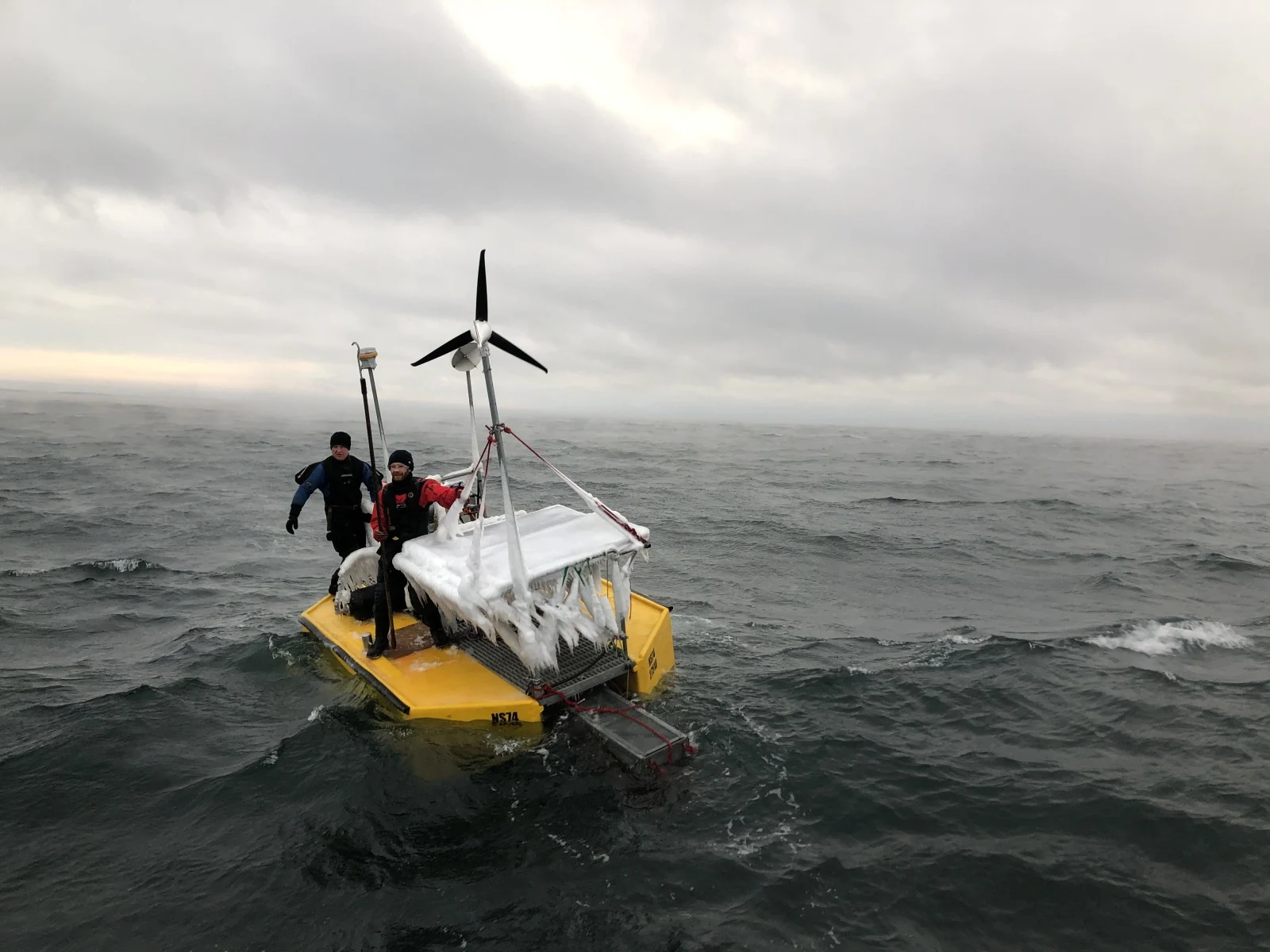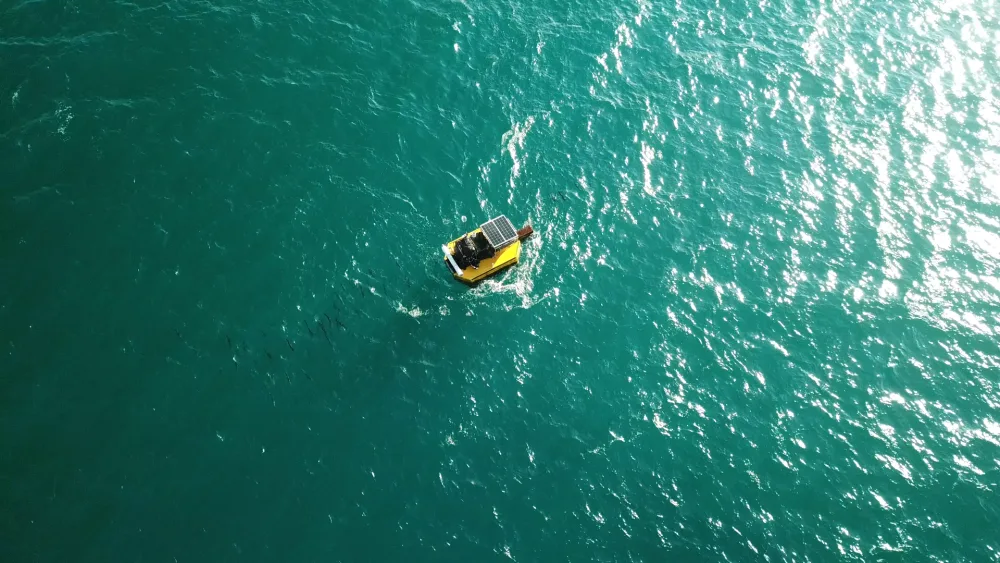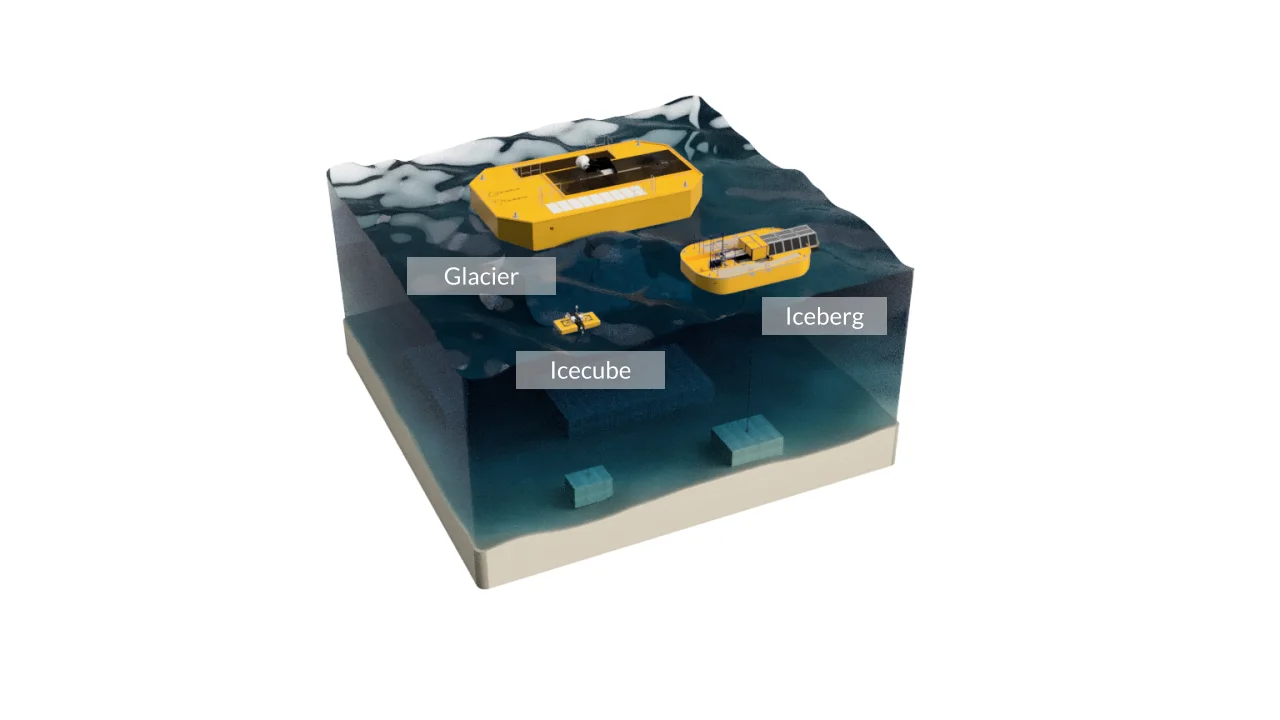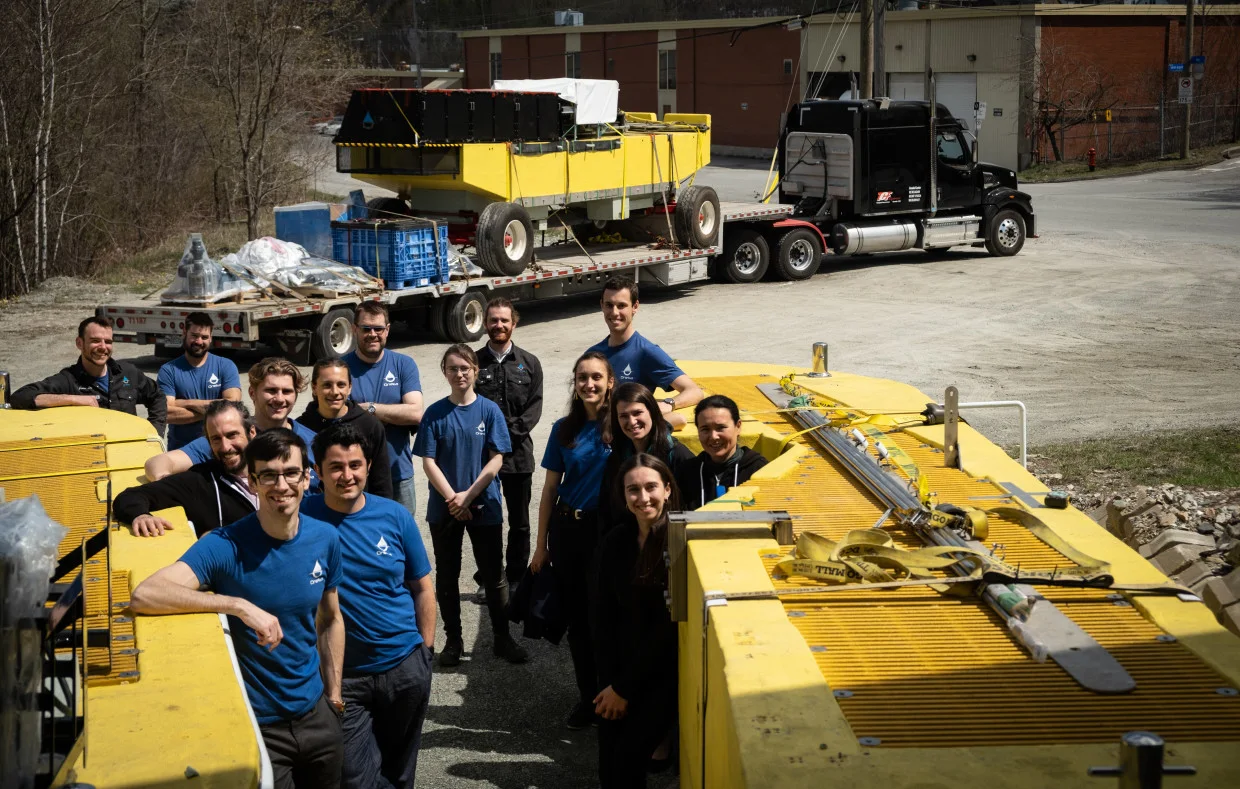
A glass of ocean water: Quebec company wins award for desalination technology
Oneka Technologies says its desalination systems can be powered solely by ocean waves and can deliver thousands of litres of clean drinking water.
Just 0.5 per cent of the planet’s freshwater is available in lakes and other bodies of water and experts are warning that a water scarcity crisis is currently underway. Climate change is amplifying geopolitical tensions as lands turn to deserts, resulting in humanitarian crises amid the harsh conditions.
Oceans are the most plentiful water resource but salt water cannot be consumed by humans, which leads many experts to one solution: desalination.
Desalination technologies remove the salt from ocean water so it can be used as drinking water or for irrigation. Oneka Technologies, a company founded in Quebec, says that their technology provides safe drinking water with their all-in-one desalination system.

An aerial view of the desalination system. (Oneka Technologies)
The company is quickly gaining international recognition for their technologies that purify ocean water solely powered by the motion of ocean waves. The desalination systems are placed on buoys that are anchored 200 metres to three kilometres from the shoreline, a distance that was chosen based on wave height and sightline away from the coast.
A ‘pumping’ action occurs when the buoys rise and fall with the waves, which compresses the seawater and squeezes it through a reverse osmosis membrane. This results in concentrated saltwater being released back into the ocean and clean drinking water being sent to the coastline through an underwater pipeline that is connected to the buoy.
The smallest desalination system consisting of five buoys can produce 50,000 litres per day and larger systems of 100 buoys can produce one million litres per day.

There are different sizes of desalination systems that produce various volumes of water. (An aerial view of the desalination system. (Oneka Technologies)
One point of contention with desalination is the concern about hypersaline water being released back into the ocean.
“When you look at the big picture, there's a lot of freshwater that is flowing into the ocean, namely [from] the Arctic, Antarctica, Greenland — it's all melting. There's more freshwater from ice flowing back in the ocean than there is [hypersaline water] from desalination. And unfortunately, it's not slowing down,” Dragan Tutic, CEO and founder of Oneka Technologies, said to The Weather Network.
“We did a permitting process in Florida for a project out there and local agencies deemed that the impact we're having [on the environment] was minimal,” Tutic added.

Oneka Technologies was founded in Sherbrooke, Quebec. (Oneka Technologies)
Although ocean water seems like an obviously untapped resource for drinking water, desalination processes can be expensive and energy intensive. Many desalination technologies are still in their infancy and governments are actively funding research and competitions to stimulate growth in this field.
This year, Oneka Technologies won a grand prize and overall a total of $1 million USD during the U.S. Department of Energy’s Waves to Water Prize — a competition for innovative desalination technologies.
Some of the criteria that helped Oneka Technologies secure the grand prize included: the high volume of freshwater produced, the speed and simplicity of their device assembly, and the speed and simplicity of their buoy deployment.
In addition to testing in Florida and North Carolina, a desalination system was shipped to Chile and an upcoming Canadian project is in the works. Both the Canadian government and the U.S. Department of Defense are currently exploring opportunities with Oneka Technologies, for various uses including emergency and disaster relief.
“We want to help those in need, so hopefully this can be put into great use,” said Tutic.
Thumbnail credit: Oneka Technologies











